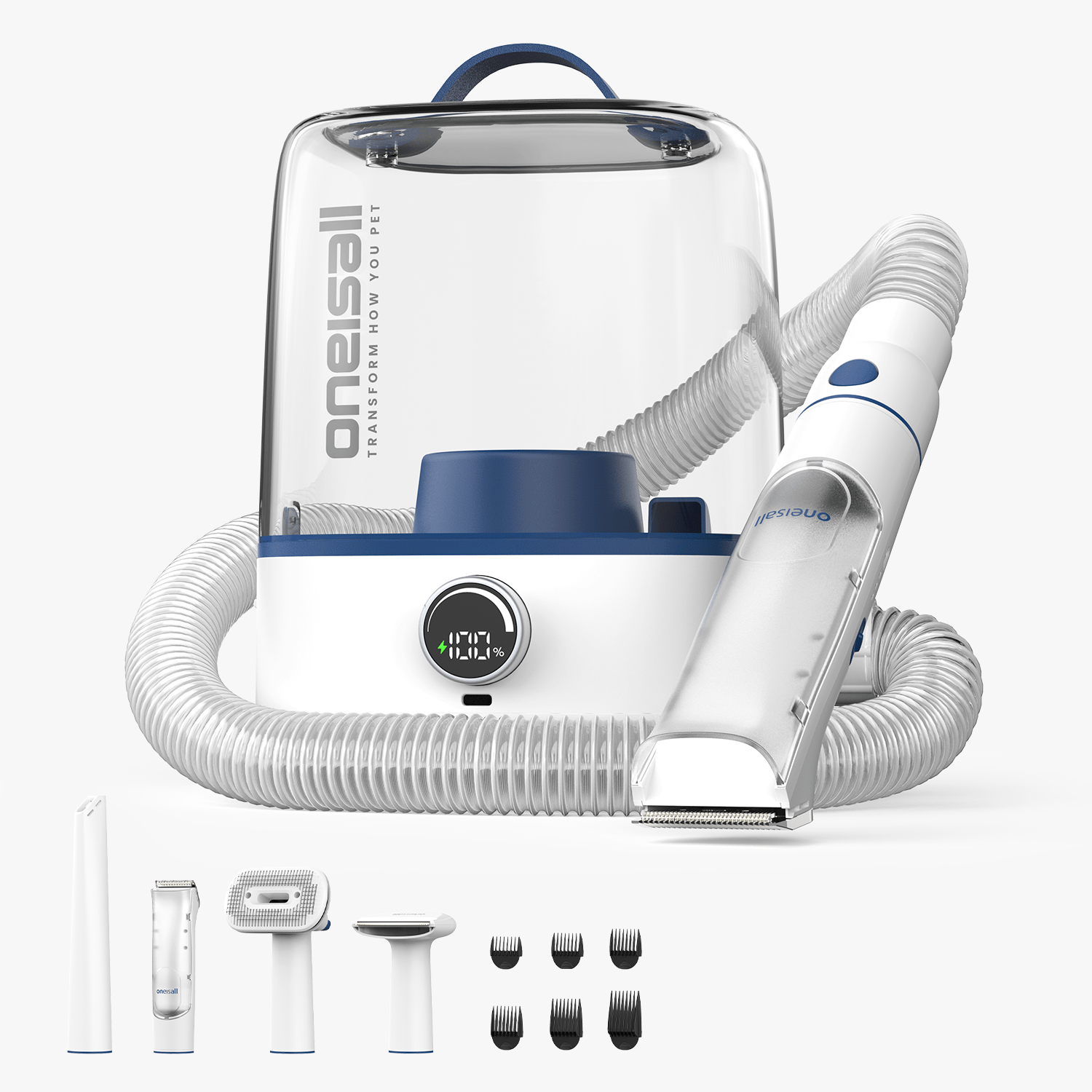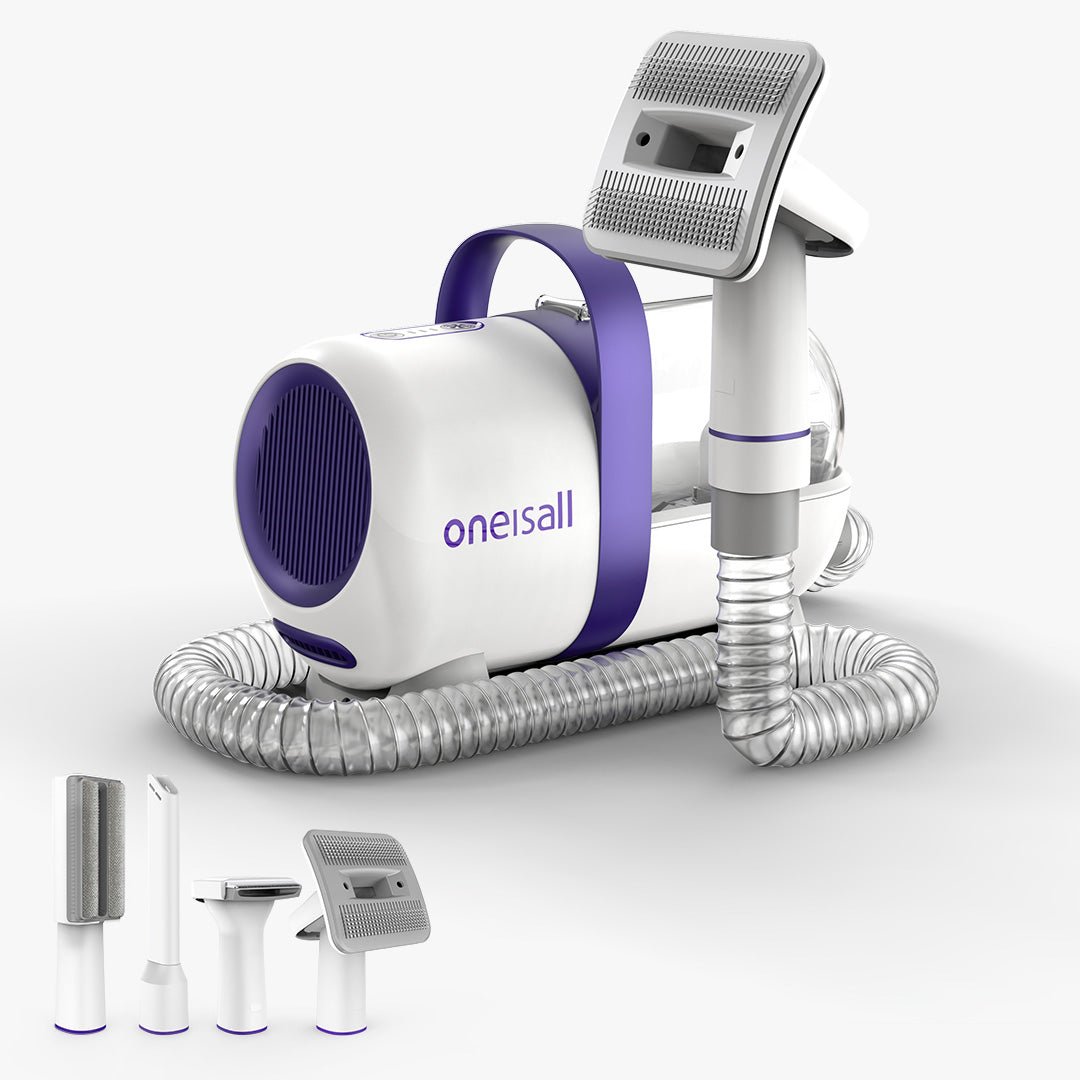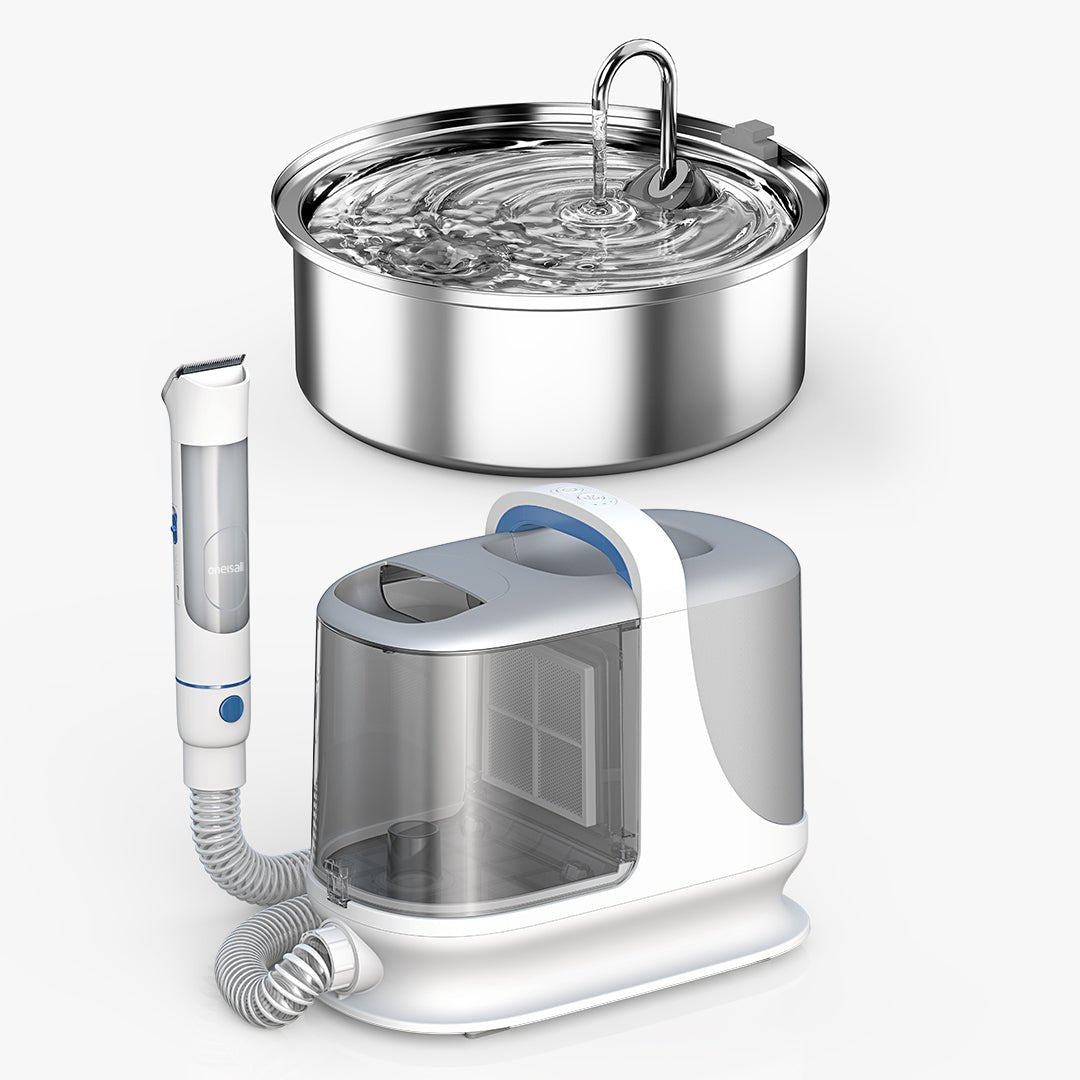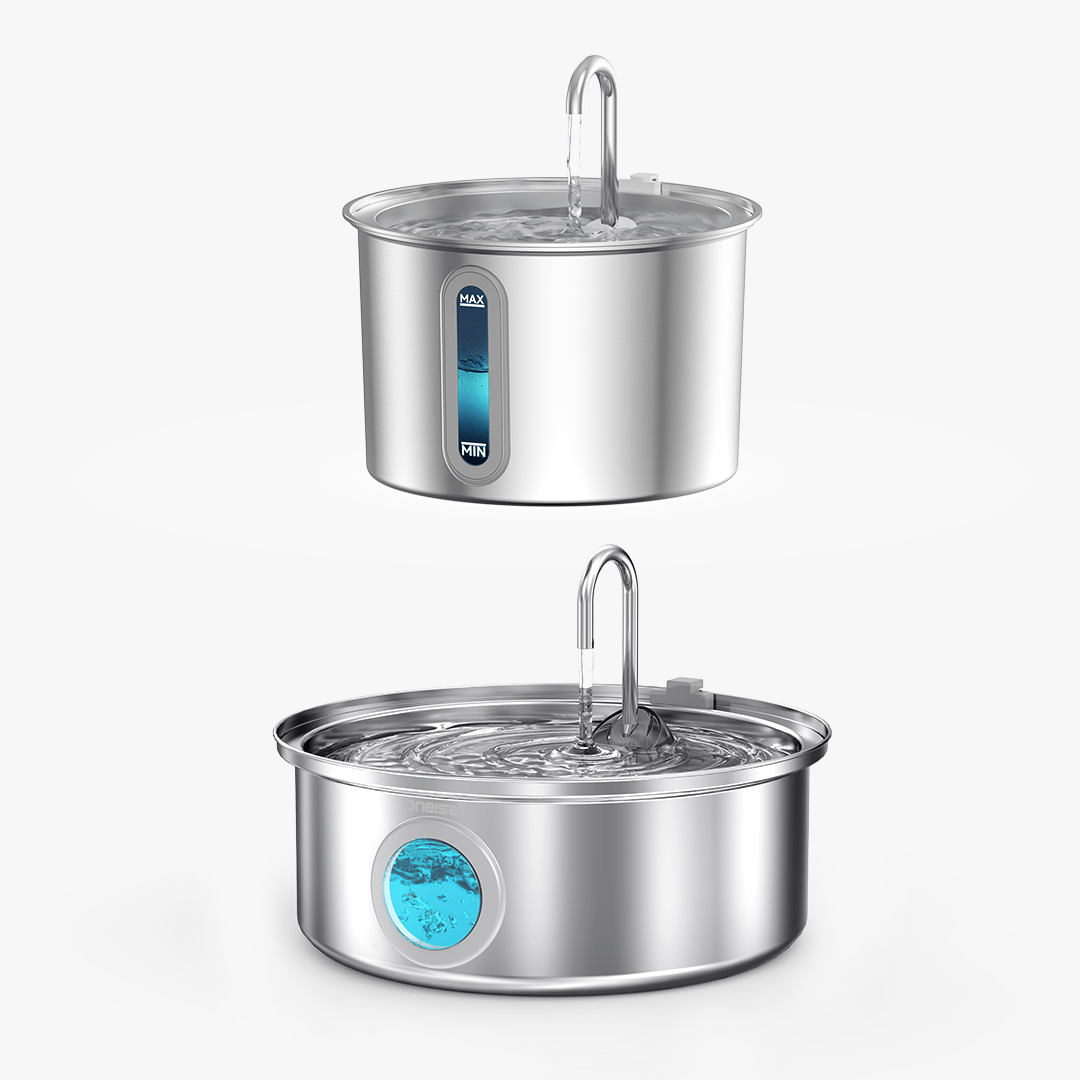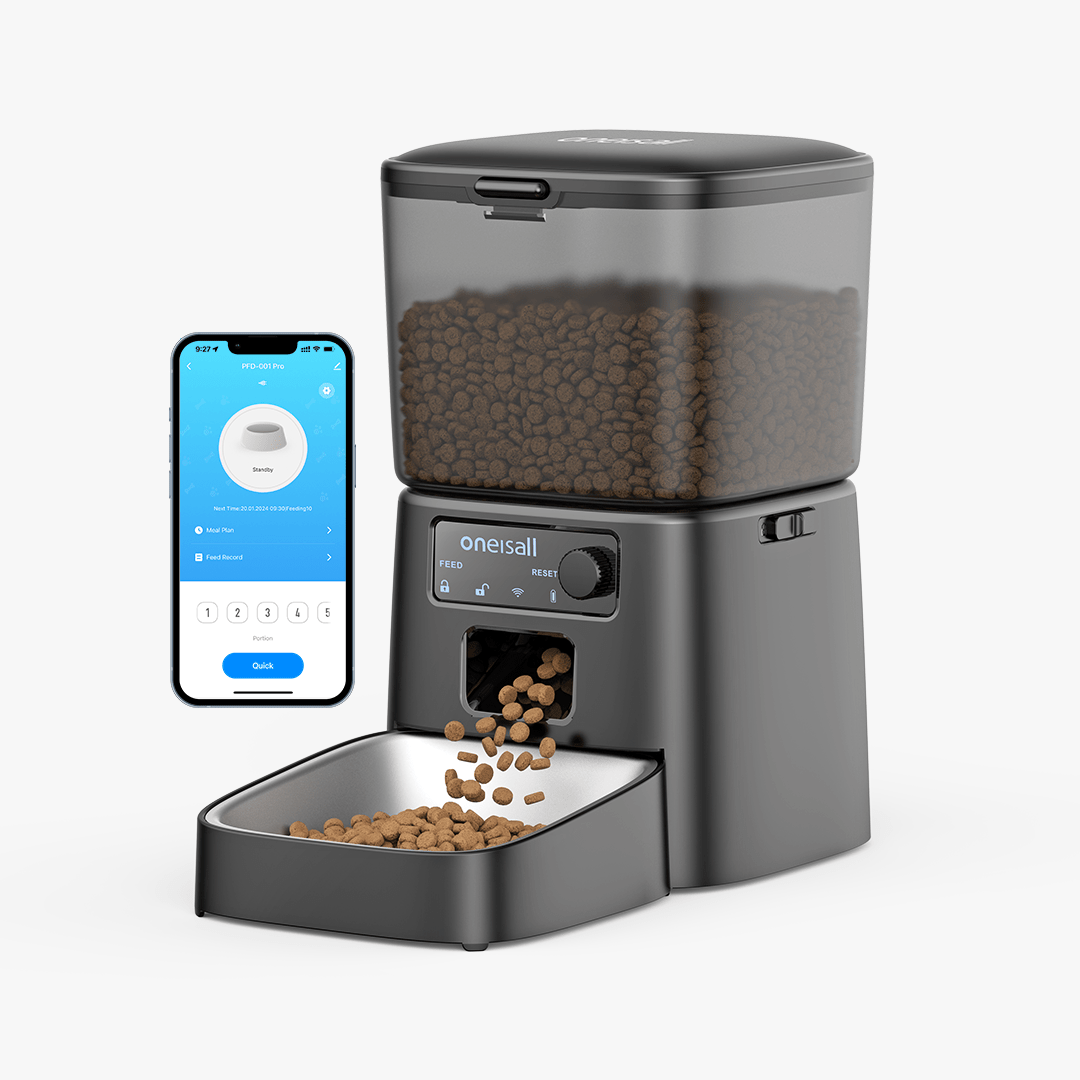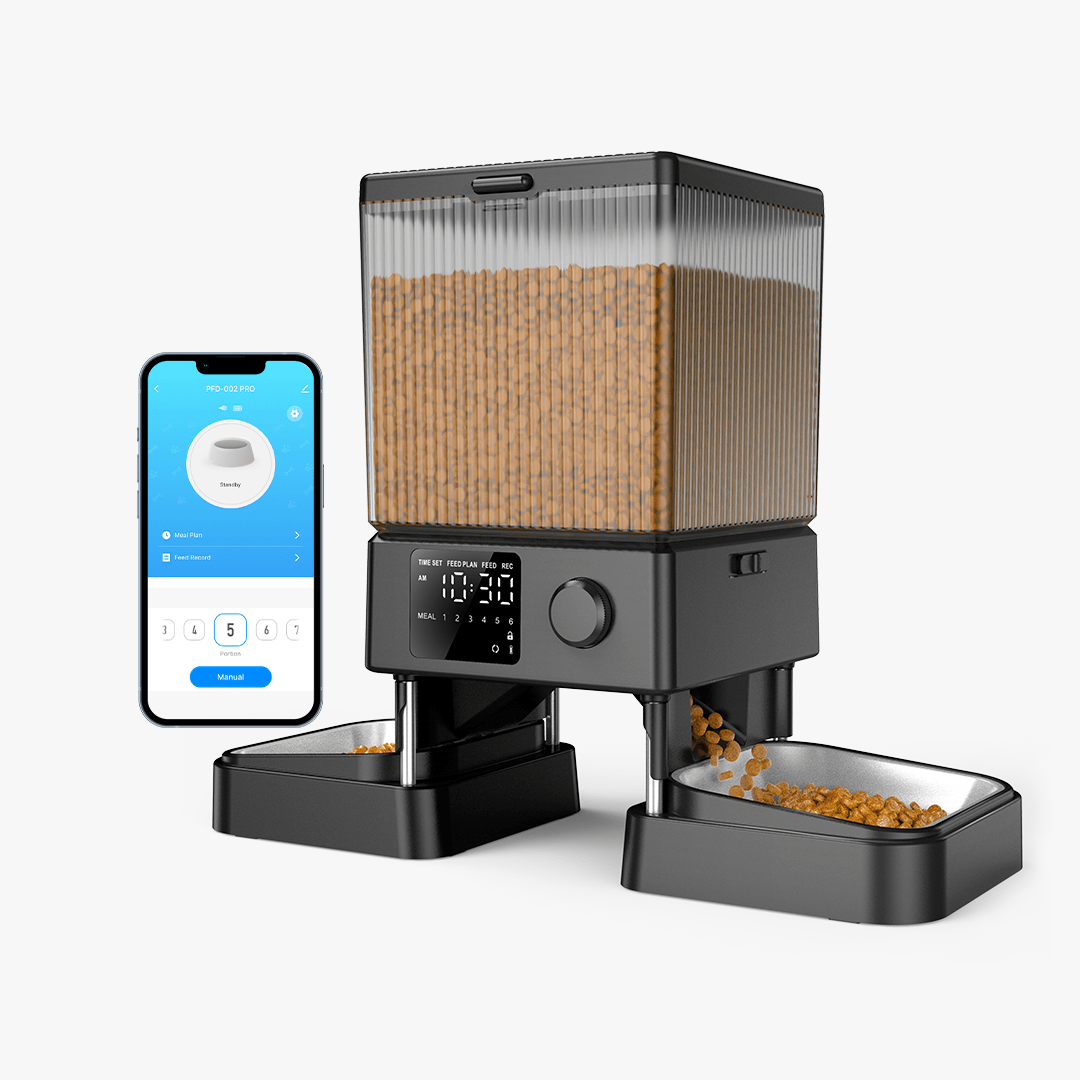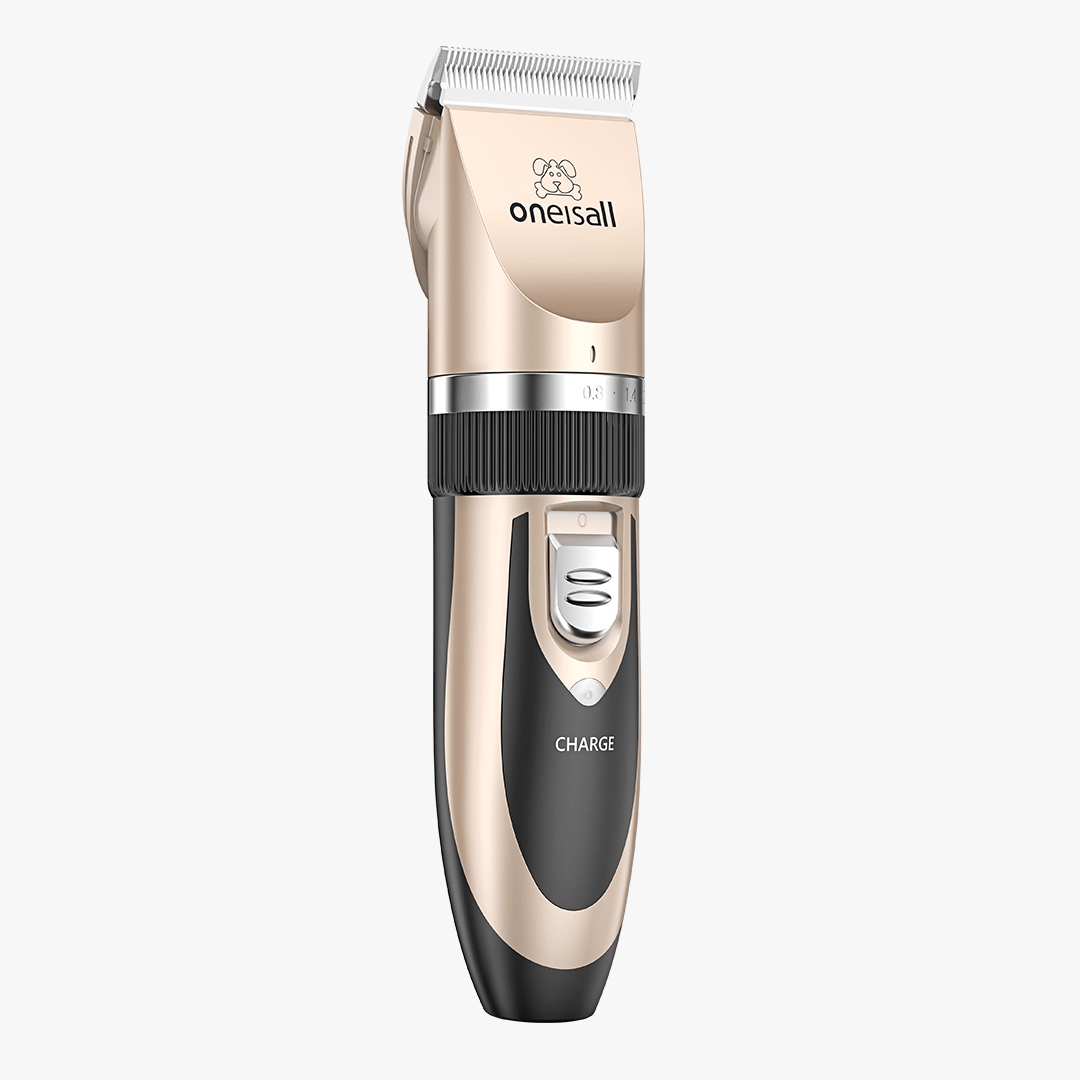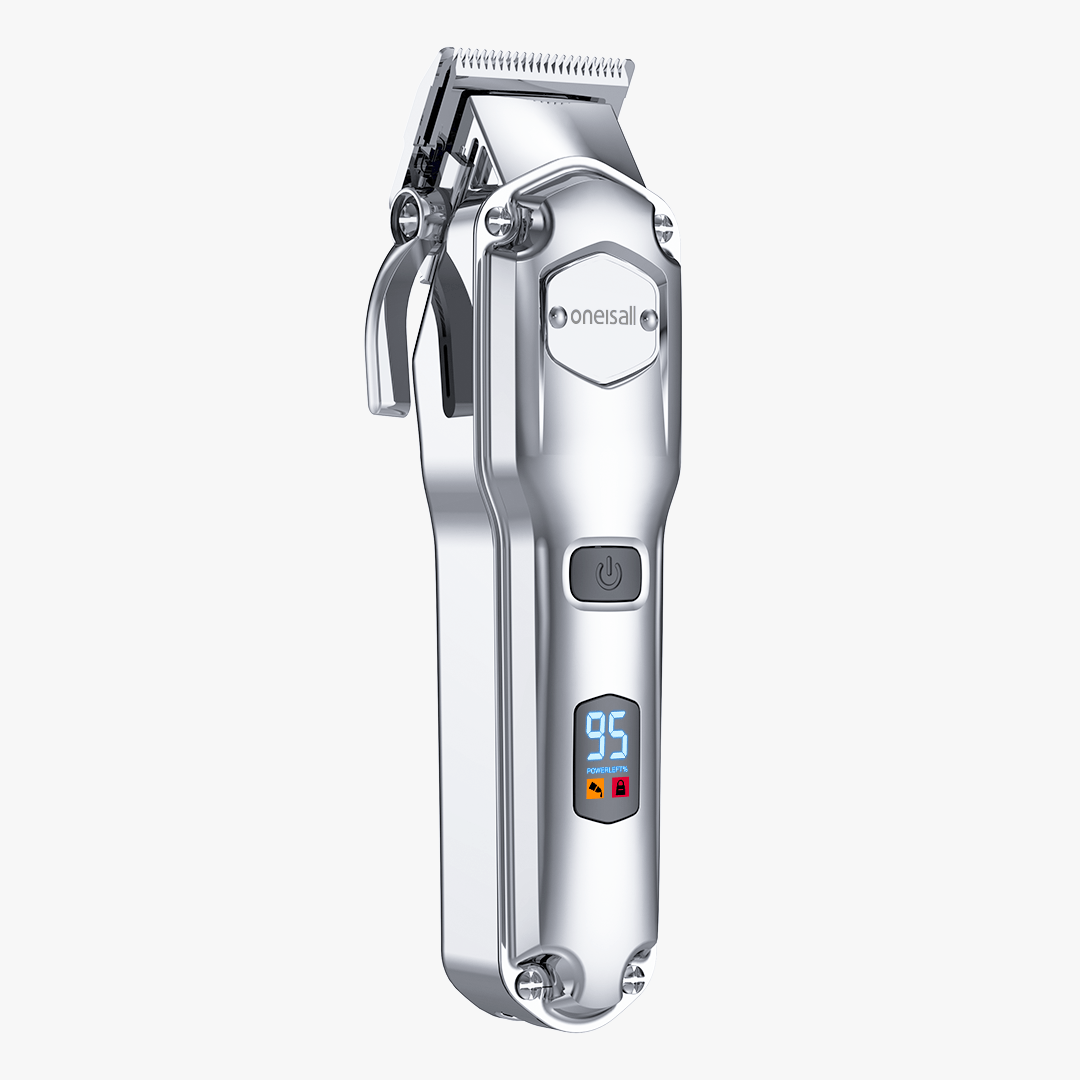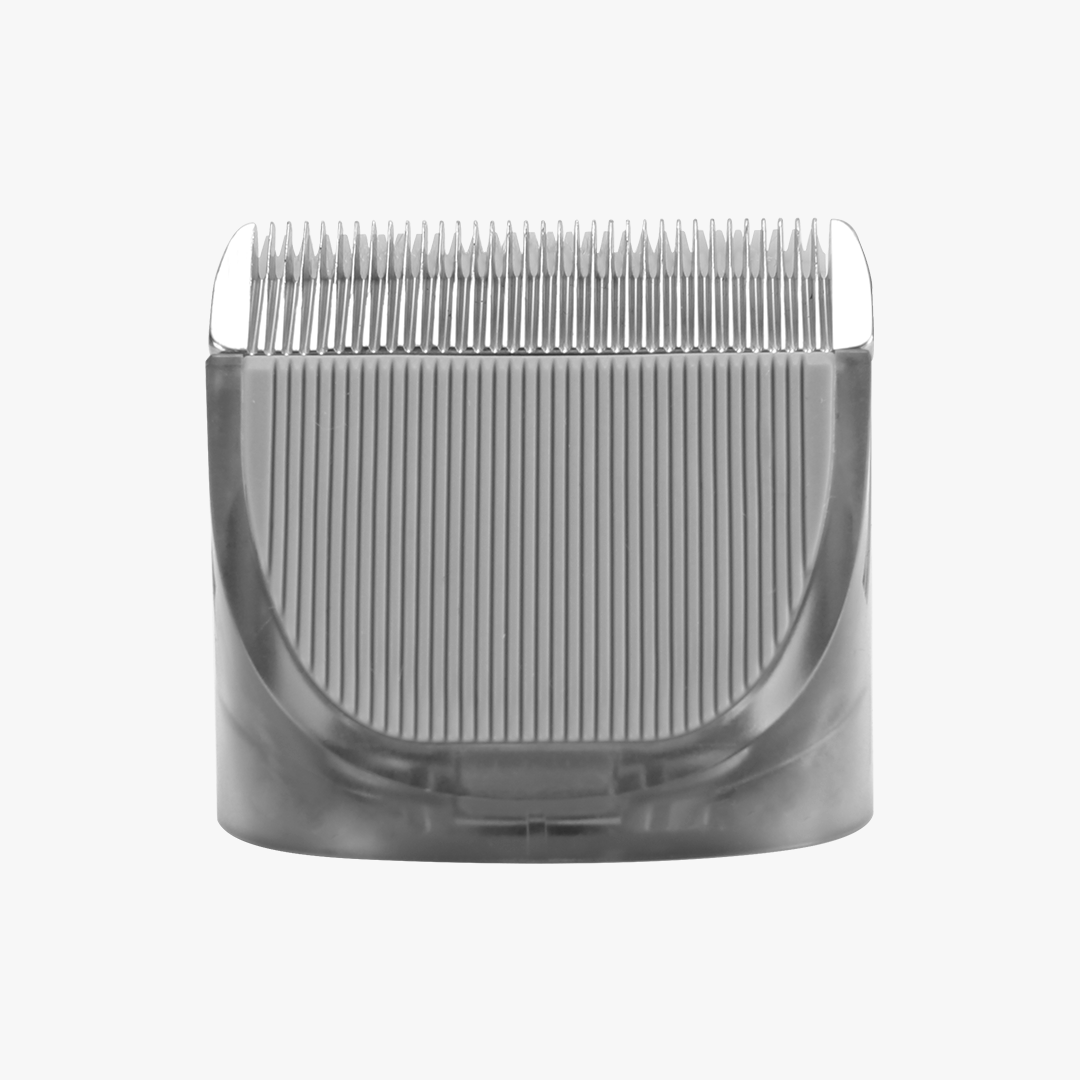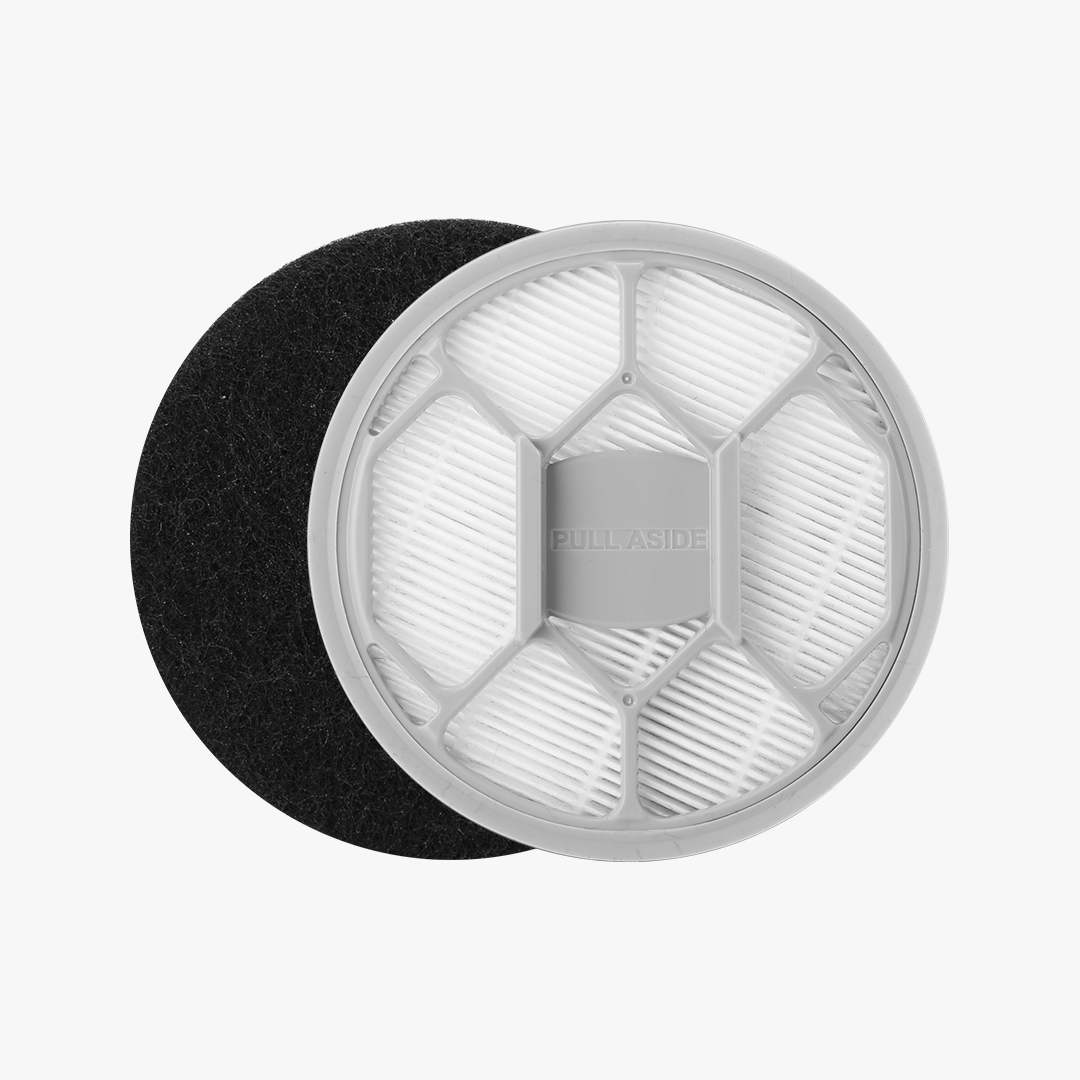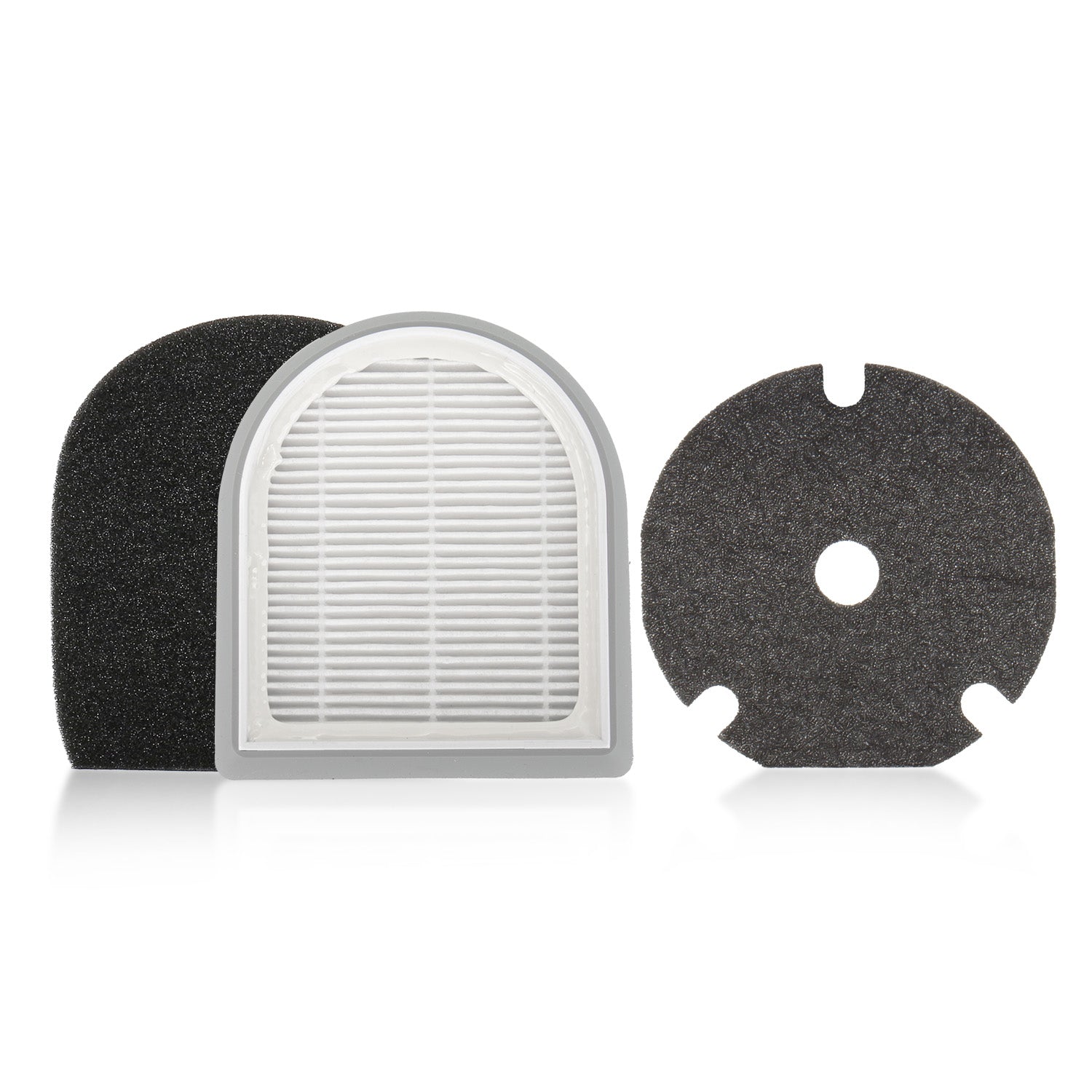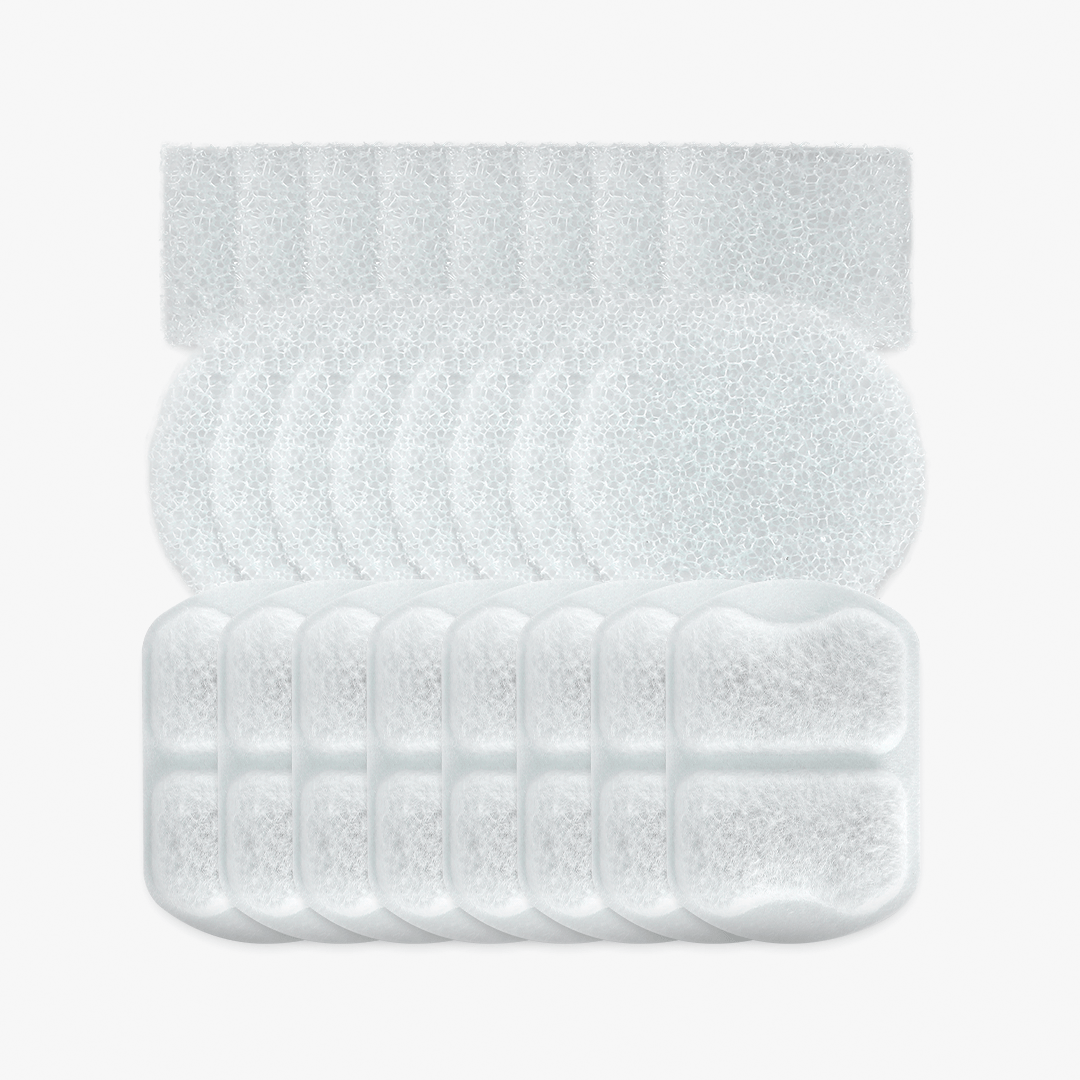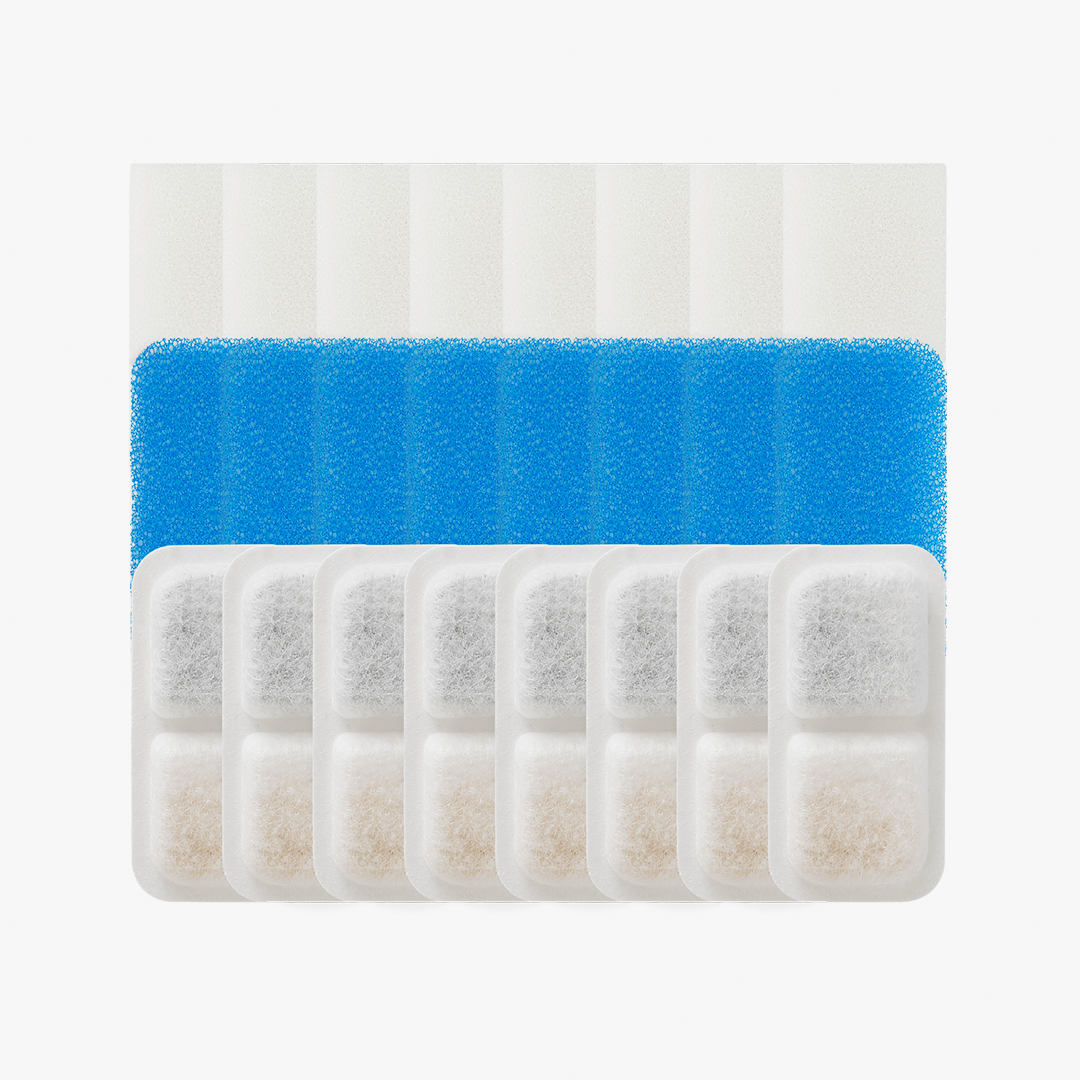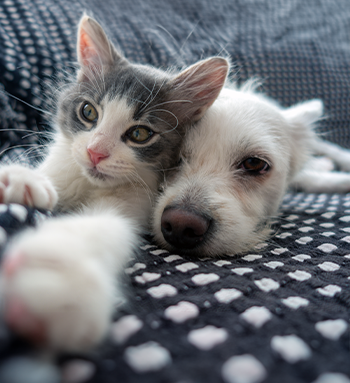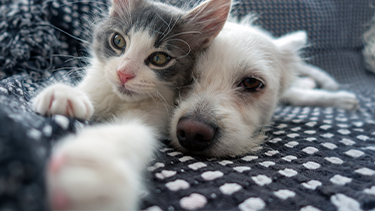Can Cats Eat Dog Food?
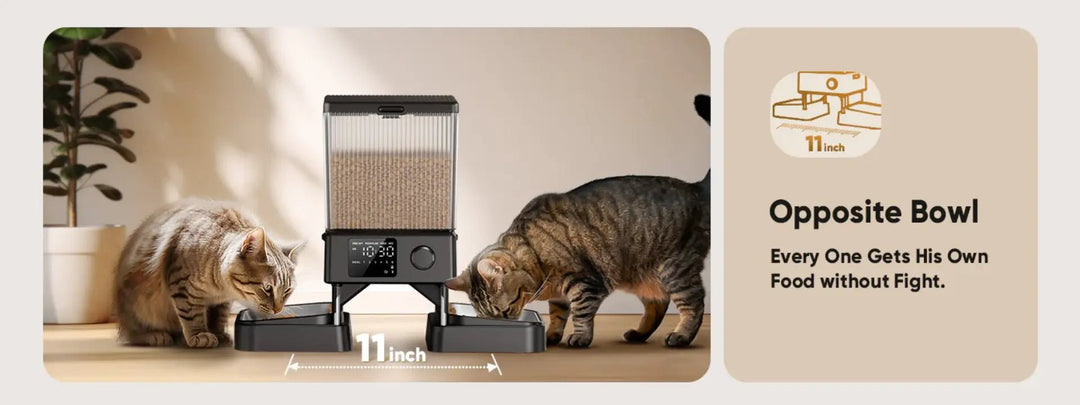
Cats and dogs have distinct dietary needs, so feeding them the right food is important for their health. Cats may occasionally nibble on dog food, but it is not a safe substitute for their regular diet.
This article explores why cats require specific nutrients, the risks of consuming dog food, and practical tips to prevent your cat from eating your dog's meals. Understanding these differences, pet owners can ensure their feline friends stay healthy and well-nourished.
Is It Safe For Cats To Eat Dog Food?
No, cats are unsafe when eating dog food as a regular diet. While an occasional nibble of dog food did not cause immediate harm, it does not provide the essential nutrients cats need for long-term health.
Essential Nutrients for Cats
Cats are obligate carnivores, meaning their diet must include specific nutrients like taurine, vitamin A, and arachidonic acid, which are present in sufficient quantities in cat food but often lacking in dog food.

Risks for Cats Eat Dog Food
Feeding dog food to cats regularly can lead to nutrient deficiencies, affecting their vision, heart health, and immune system. Additionally, some ingredients in dog food, like garlic or onion powder, are toxic to cats and can cause severe health issues even in small amounts.
Stick to Cat Food
To keep your cat healthy, stick to a diet formulated for felines. If your cat accidentally eats a small amount of dog food, monitor them for any signs of illness, such as vomiting or lethargy, and consult your veterinarian if needed.
How To Stop Your Cat From Eating Dog Food?
To stop your cat from eating dog food, try separation. Feed your cat and dog in different areas to prevent food access. Use automatic dog feeders like the Oneisall Automatic Pet Feeder, which allows for scheduled meals and portion control. This way, each pet gets their food at the right time and amount, reducing the chances of one stealing from the other.
You can also elevate the dog’s food dish or use puzzle feeders for your cat to keep them engaged. Ensuring your cat’s food is always fresh and readily available will also decrease their temptation to eat the dog’s food.
Set Separate Feeding Spaces
Keep your auto cat feeder and automatic dog feeder in different areas. Cats are territorial and prefer eating in a quiet, undisturbed location. Separating feeding spaces can prevent your cat from wandering to the dog’s dish.
If you live in a multi-pet household, you might need feeders catering to dogs and cats. The Oneisall 3.5L Automatic Feeder has separate compartments, allowing you to feed your cat and dog on time without risking one eating the other's food. With its app control and portion management, busy pet owners ensure each pet’s health.
Related Reading: Why Automatic Feeders Are a Game-Changer for Busy Pet Owners?
Stick to Feeding Schedules
Feed both pets at the same time but in separate rooms. Supervise meal times to ensure each animal eats only from their designated bowl. Remove any leftover food promptly to avoid temptation later.
Oneisall Automatic Pet Feeder manages separate feeding schedules for your cats and dogs. With its precise portion control and the ability to set specific meal times via an app, you can ensure that each pet gets their designated meal without interference from the other.
Related Reading: Automatic Pet Feeder
Use a Cat-Specific Feeding Station
Invest in an automatic feeder for cats. Elevated feeders or microchip-activated bowls can help block your cat from accessing your dog’s food while allowing your dog to eat comfortably.
Provide High-Quality Cat Food
Ensure your cat is satisfied with their meals by offering high-quality cat food. A well-fed cat is less interested in sneaking bites of your dog’s food.
Train Your Cat to Avoid the Dog Dish
Use positive reinforcement to redirect your cat away from the dog’s bowl. Reward your cat when they eat from their own dish or avoid the dog’s area. Consistent training can help them break the habit over time.

What’s The Difference Between Cat And Dog Food?
Cats Need More Protein and Fat
Cats are obligate carnivores and require higher levels of protein and fat than dogs. Cat food is designed to meet these needs with meat-rich formulas, while dog food contains more plant-based ingredients to suit their omnivorous diet.
Essential Nutrients for Cats
Cat food includes essential nutrients like taurine, vitamin A, and arachidonic acid. These are beneficial for a cat’s vision, heart health, and overall well-being. Dog food often lacks these nutrients because dogs can produce or synthesize them naturally.
Different Caloric Requirements
Cats have smaller stomachs but higher calorie needs per pound of body weight compared to dogs. Cat food is formulated to be calorie-dense, while dog food is less concentrated to accommodate their different metabolisms.
Dog Food May Contain Unsafe Ingredients
Some dog foods include ingredients like garlic, onion powder, or higher levels of carbohydrates. These ingredients are harmless for dogs but can be toxic or unhealthy for cats.
Texture and Flavor Differences
Cat food is made with textures and flavors tailored to a cat’s preferences, such as softer kibble or savory wet food. Dog food textures and flavors may not appeal to cats, even if they occasionally eat it.
Why Do Cats Like Dog Food?
Cats are often attracted to dog food, primarily due to its strong scent and flavorful taste. Dog food, typically rich in proteins and fats, appeals to cats' carnivorous nature. However, dog food is not designed for feline consumption and lacks vital nutrients that cats need, such as taurine.
Feeding cats and dog food regularly can lead to nutritional imbalances and health issues. Therefore, cat owners need to provide their pets with cat-specific food that meets all their dietary requirements.
What Happens If My Cat Ate Dog Food?
If your cat eats a small amount of dog food occasionally, it is generally not a cause for concern. Dog food is not toxic to cats, but it lacks the essential nutrients cats need to thrive.
Cats are obligate carnivores, meaning they require specific nutrients like taurine and arachidonic acid, which are only found in animal-based sources. Dog food does not contain these in sufficient quantities, regular consumption of dog food could lead to nutritional deficiencies in your cat over time.
If your cat accidentally eats dog food, monitor them for any signs of discomfort, like vomiting, diarrhea, or loss of appetite. If symptoms appear, consult your veterinarian. To prevent future incidents, provide the right diet stores dog food out of your cat’s reach and ensure your cat has access to their nutritionally complete cat food.
Conclusion
Cats need a diet tailored to their carnivorous nature, rich in essential nutrients like taurine and vitamin A, which are often absent in dog food. Regular consumption of dog food can lead to nutritional deficiencies and health risks for cats.
Pet owners should prioritize providing high-quality cat food and take steps to separate feeding areas and schedules to prevent dietary mishaps. A proper diet and vigilance will help your cat thrive and stay healthy.
FAQs
1. Can Feeding Dog Food to Cats Cause Health Problems?
Yes, feeding dog food to cats can cause health problems over time. The lack of essential nutrients in dog food can lead to issues like heart disease, vision problems, and a weakened immune system in cats.
2. Can Cats and Dogs Share the Same Food Dispenser?
No, provide separate food dispensers for cats and dogs. This prevents cross-contamination and ensures each pet receives the appropriate food for their dietary needs.
3. How Do I Ensure My Cat Gets the Right Nutrition?
Feed your cat specifically formulated for felines. Consult your veterinarian for recommendations on the best food for your cat's age, health, and activity level.
4. Can Feeding Dog Food to Cats Affect Their Lifespan?
Feeding dog food to cats over time can lead to nutritional deficiencies, which may negatively impact their health and potentially shorten their lifespan.







